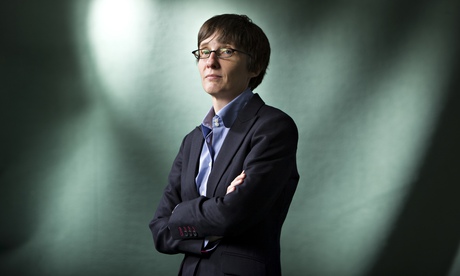
The writer Alison Kennedy was the pitch-perfect accompaniment as those north of the border gird themselves for the opening of the Commonwealth Games in Glasgow this week and (perhaps of more moment) that not unhistoric vote, for a wise, funny, gloomy, honest and unashamedly intellectual five quarter-hours of trawling through her homeland in The Essay: Homage to Caledonia. This was some of the most feisty radio I've heard this summer, and I count myself lucky to have found it, tucked away on 3 at the witching hour – it should by rights have been splendidly on morning primetime, but perhaps that would have scared the Shire horses.
Kennedy's nuanced takes on everything from Scotland's humour, upbringings, guilt, accent, tartanness, dourness (or prudence?), class and orally playful culture were packed tighter than a sockful of marbles with insights, nearly all of them applicable on an internationalist stage. Whether she was explaining the crucial linguistic difference between "no' awfy weel" and "awfy no' weel", trashing the "messianic alcoholic and amateur transvestite Bonnie Prince Charlie" or bemoaning wistfully the Dundee history she never really knew, because we'd been taught as a subservient nation to become used to never being taught that, her every utterance reeked of healthful cleverness. Her individual experience, as are they all, is a love-hate affair with Scotland: on the plus side sit proudly the embrace of dignity, how the light falls, a certain internationalism, a very particular sense of humour, pride in self-education. The downside features "self-harm, wee men with nasty big assumptions, a joyless God, fear of success/worship of success, sectarianism, dead-end schemes, bad habits, the embracing of humiliation, parochialism and golf".
As a fellow Scot (and Dundonian by formation), exiled by choice to what Kennedy called "London's overpriced and overanxious megalopolis", I too sadly missed in the 1990s something happening in my homeland on which she was particularly savvy. The UK regional identities "rebounded from Margaret Thatcher's insistence on the pre-eminence of England's south-east", and, inter alia, kilts actually became cool: and, finally, that job started so well by Billy Connolly in the 70s – the rough and pawky dismantling of ludicrous myths, what Tom Nairn called "kailyard sentimentality" – began to bear fruit. Partly of course through politics, partly through simply taking the rip out of not-so-old cultural fabrications. Scotland grew up. A bit. "Coming from a tradition which respects intellectual activity, I keep learning," spoke Kennedy, and she obviously delights in that: some fellow Scots, less so. This was the most refreshingly brilliant antidote you could wish for this year to those tartan cyber trolls who care naught for any view which challenges their thirled opinions (and thus ignore the grand Scots tradition of flyting): the veritable carnival of bawbags.
A useful sidebar to this series was to be found in Back to Charm School, a grand World Service programme on preparations for the Commonwealth Games. Glasgow is, of all cities perhaps, known for its people, and the only one which makes a marketing point of branding its people as the very strength of the place – Glasgow's Miles Better; Glasgow: The Friendly City. Angry people, some: but mostly charming, direct, caring, and reeking of individuality, theirs and their country's. So why, in the lead-up to the Games, have the powers-that-be found it necessary to bring in a team of "trainers" linked to the Walt Disney Company (for shame) to attempt to straitjacket the city's taxi drivers, binmen, shop staff into some sort of Charm 2.0 robot mode?
Presenter Aasmah Mir found them, the binmen and cabbies, to be taking it all with a cheerful pinch of road salt. They went along to the courses, mainly for a laugh, but retained a supreme confidence in their innate west-coast rough courtesy to suffice. I'd have been more insulted than they seemed. Mir, fortunately, also tracked down enough academics (in English universities), specialising in urban sociology, leisure facility management and other such jobs for grown people, to say how they thought attempts to Disneyfy Glasgow were a thoroughly good idea, thus reinforcing just how wide is the cultural divide between two neighbouring countries.
Who can forget John Smeaton, the baggage-handler who helped foil a terrorist scuffle at the city's airport a few years ago, being asked to send a message to the putative bombers. "This is Glasgow!" he answered with incredulity. "We'll set aboot ye!" Priceless. Let the games, in every sense, begin.
Don't Make Me Laugh is the new attempt by David Baddiel at a radio comedy hit, not that he needs many more. It works – not brilliantly, on this pilot showing, and even the panellists struggled a bit with the rules, but the sound of four professional comedians trying not to get any laughs with such overripe subjects as scoutmasters and the Richard-Judy suicide pact brought much glee, not least through the muffled half-heard corpsing of Ben Miller and Aisling Bea.

